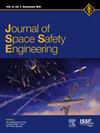全球治理与航空航天——需要一种管理一体化的航空航天教育范式
IF 1.7
Q3 ENGINEERING, AEROSPACE
引用次数: 0
摘要
在未来20年,在环境问题和全球发展的推动下,航空航天技术的进步将改变航空业。更高空域作战(HAO)的出现将在电信、地球观测和高超音速运输等领域创造新的可能性,使用跨大气飞行器和高空平台站。与此同时,通过先进的空中机动性(AAM),包括无人机(UAV)和空中出租车,低空领域正在经历增长。中国正在引领这一“低空经济”倡议,据预测,到2040年,城市空中交通的估值可能超过万亿美元。在高海拔和低海拔地区的扩张标志着全球范围内的重大技术进步和经济效益。所有这些进步都对航空航天的运营、管理和治理提出了重大挑战,最重要的是它们与安全有关。为此,北京理工大学成立了全球治理学院(SGG),以解决中国不断演变的全球角色、中国越来越多地参与联合国以及航空航天相关研究生课程中缺乏综合管理和治理内容的问题。该学院开发了四个主要重点领域:航空与太空、数字经济与人工智能、环境与可持续性以及治理。SGG的目标是保持相当比例的国际教师。学校强调国际化的课程,使学生具备航空航天研究的多面性和跨学科性质。通过提供商业管理、公共管理或法律方面的全球治理学位,学生可以灵活地根据自己的职业目标量身定制论文。SGG通过谅解备忘录(mou)建立了许多国际伙伴关系,为学生提供实习机会。学校的教育方法以自主学习原则为基础,培养学生终身学习的技能。本文章由计算机程序翻译,如有差异,请以英文原文为准。
Global governance & aerospace – The need for a management-integrated air and space education paradigm
In the coming 20 years, advancements in aerospace technology will transform the aviation industry, spurred by environmental concerns and worldwide developments. The emergence of Higher Airspace Operations (HAO) will create new possibilities in fields such as telecommunications, Earth observation, and hypersonic transportation, employing trans-atmospheric vehicles and High-Altitude Platform Stations. Simultaneously, the low-altitude sector is experiencing growth through advanced air mobility (AAM), including unmanned aerial vehicles (UAV) and air taxis. China is spearheading this "low-altitude economy" initiative, with projections suggesting that urban air mobility could surpass a trillion-dollar valuation by 2040. The expansion in both high- and low-altitude domains signals significant technological progress and economic benefits on a global scale. All these advancements present significant challenges to operations, management, and governance of air and space, most importantly as they relate to safety. In response, the Beijing Institute of Technology's School of Global Governance (SGG) was established to address China's evolving global role, its increasing involvement in the United Nations, and the lack of integrated management and governance content in aerospace-related graduate programs. The school has developed four primary focus areas: air and space, the digital economy and AI, the environment and sustainability, and governance. The SGG aims to maintain a significant proportion of international faculty members. The school emphasizes an internationalized curriculum to equip students with the multifaceted and interdisciplinary nature of air and space studies. By offering a global governance degree in business management, public administration, or legal focus, students have the flexibility to tailor their thesis or dissertation to their career goals. The SGG forged numerous international partnerships through Memorandums of Understanding (MoUs), providing students with internship opportunities. The school's educational approach is grounded in Self-Directed Learning principles, fostering skills for lifelong learning in its students.
求助全文
通过发布文献求助,成功后即可免费获取论文全文。
去求助
来源期刊

Journal of Space Safety Engineering
Engineering-Safety, Risk, Reliability and Quality
CiteScore
2.50
自引率
0.00%
发文量
80
 求助内容:
求助内容: 应助结果提醒方式:
应助结果提醒方式:


